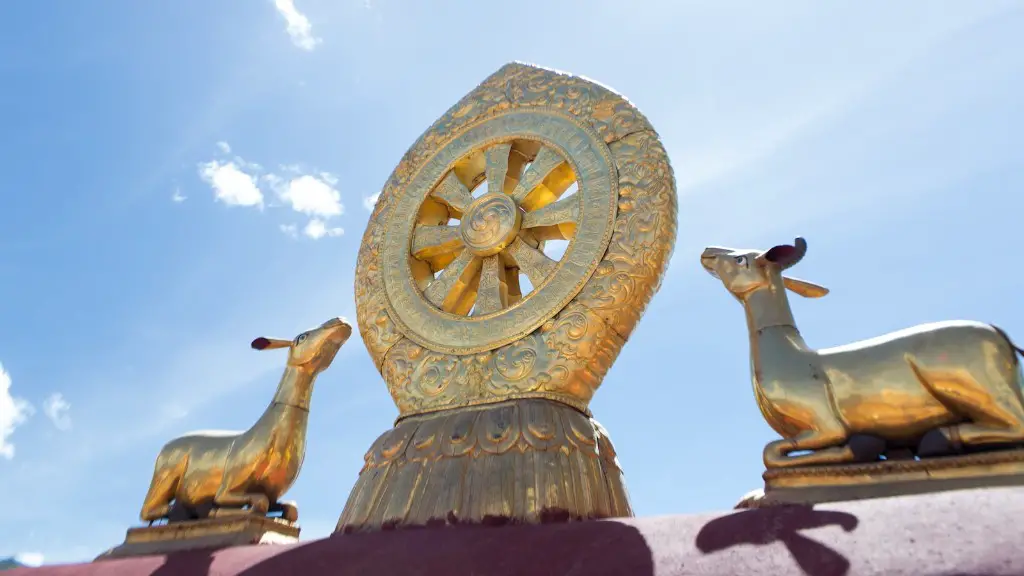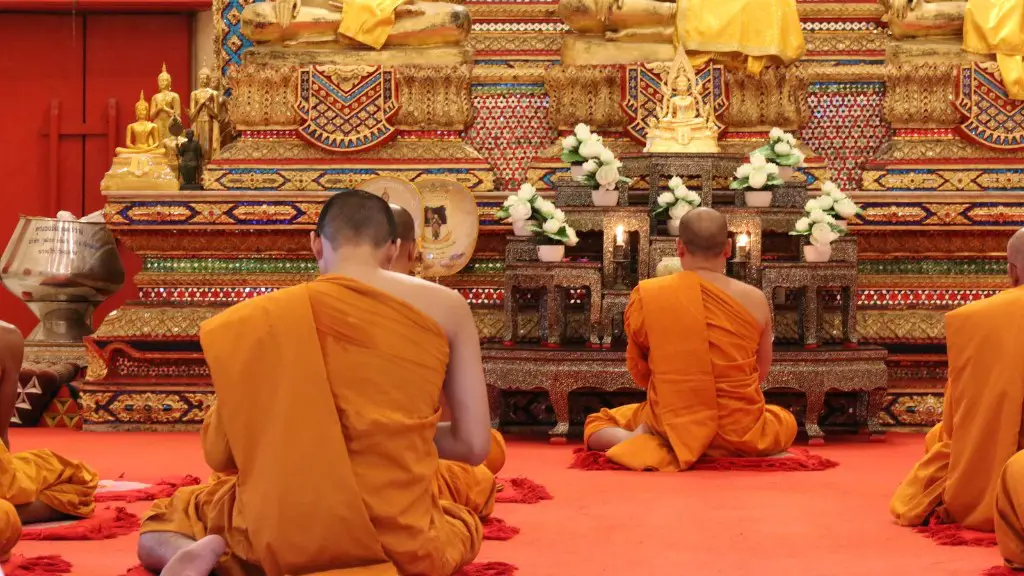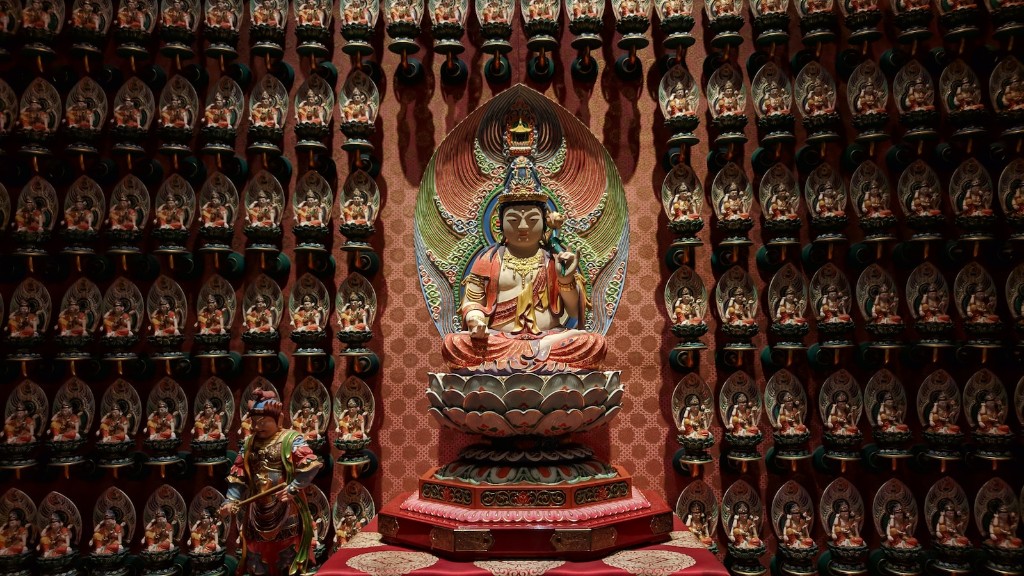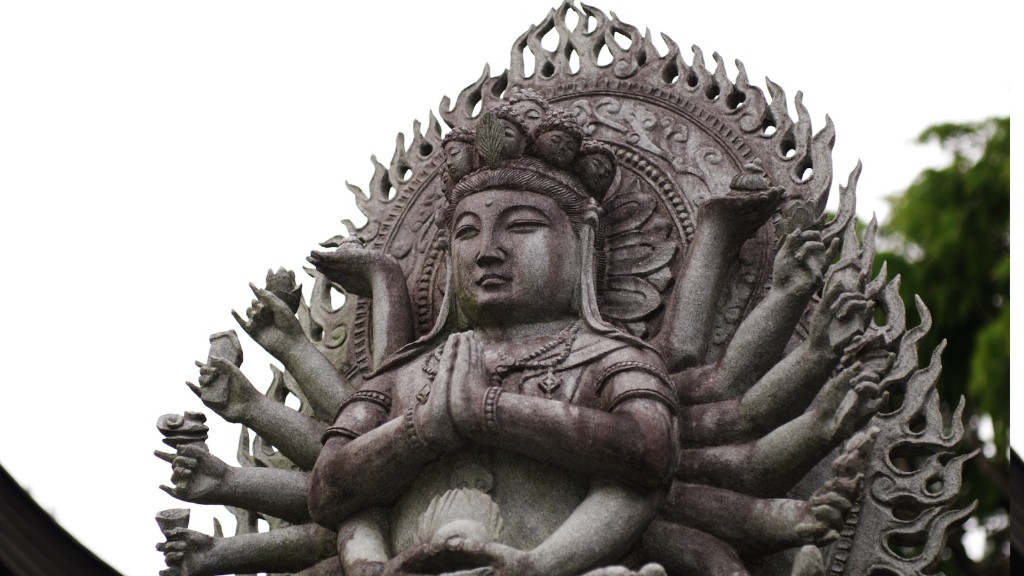Buddhism is a religion and philosophy founded in India by Siddhartha Gautama. The word “buddha” means “awakened one” or “the enlightened one.” Buddhists believe that all beings have the same fundamental nature, which is termed “Buddha-nature.”
Buddhism teaches that the key to liberation from suffering is to let go of the false belief that we are separate, isolated beings. Through our practice of meditation and other spiritual technologies, we can access our true nature and experience the interconnectedness of all things.
There is no single answer to this question as the meaning of Buddhism varies depending on who you ask. In general, however, Buddhism is a religion and philosophical system that includes a variety of beliefs and practices that are meant to help individuals find enlightenment, or understanding and knowledge about the true nature of reality.
What is the real meaning of Buddhism?
Buddhism is a religion with a long and rich history. It is one of the largest religions in the world, and it originated in India over 2,500 years ago. Buddhists believe that human life is full of suffering, and that meditation, spiritual and physical labor, and good behavior are the ways to achieve enlightenment, or nirvana. Buddhism is a complex and fascinating religion, and it has had a profound impact on the world.
Buddhist teachings state that there are divine beings called devas (sometimes translated as ‘gods’) and other Buddhist deities, heavens, and rebirths in its doctrine of saṃsāra, or cyclical rebirth. However, Buddhism teaches that none of these gods is a creator or an eternal being, though they can live very long lives.
What is the main purpose of Buddhism
Nirvana is the goal of Buddhism, and is believed to be attainable only with the elimination of all greed, hatred, and ignorance within a person. Nirvana signifies the end of the cycle of death and rebirth, and is the highest state that a person can achieve.
Buddhism is a religion that is based on the teachings of Siddhartha Gautama. The main principles of this belief system are karma, rebirth, and impermanence. Buddhism teaches that actions have consequences and that every individual is responsible for their own actions and destiny. This religion also believes in reincarnation, or the idea that after someone dies, they are reborn into another life. Buddhism teaches that everything is constantly changing and that nothing is permanent.
Does Buddhism believe in Christianity?
There are some inherent and fundamental differences between Buddhism and Christianity, one significant element being that Christianity is at its core monotheistic and relies on a God as a Creator, while Buddhism is generally non-theistic and rejects the notion of a Creator God. Buddhism instead relies on the Four Noble Truths and the Eightfold Path as guidance for living.
Buddhism is a religion that originated in India in the 6th century BC. It is a non-theistic religion, which means it does not believe in a creator God, unlike theistic religions such as Christianity. Buddhism was founded by Siddhartha Gautama (also known as Buddha), who, according to legend, was once a Hindu prince.
Do Buddhists believe in heaven?
In Buddhism, there is no concept of punishment or reward. There is no divine being who decides who goes to hell or heaven. There is merely the illusory results of our thought, words and deeds, which we call karma.
Buddhavacana texts are seen as the word of the Buddha and are therefore accorded a special status as sacred scriptures. These texts are believed to be in line with the historical Buddha’s teachings, known as the Dharma. Buddhavacana texts are important for understanding how Buddhists see their texts and how they are classified.
Do Buddhist believe in Christmas
Buddhists see Christmas as a time to celebrate the avatar of Jesus, who they believe brought blessings to our beloved Earth. They have their own way of celebrating, which often includes giving gifts, decorating their homes, and spending time with family and friends.
The daily lives of monks revolves around a strict schedule that includes meditation, study of scriptures, and taking part in ceremonies. Buddhist shrines, monasteries, and stupas can be found all over the world, and provide a place for monks to live and worship.
Who are the 3 gods of Buddhism?
The three buddhist deities, Vajrapani, Manjushri and Avalokiteshvara, are believed to be the protectors of the Dharma. They are often depicted holding a vajra (thunderbolt), a sword and a lotus respectively. These symbols represent their power to cut through ignorance, to destroy evil and to lead beings to enlightenment.
Buddhist teaching views life and death as a continuum, believing that consciousness (the spirit) continues after death and may be reborn. Death can be an opportunity for liberation from the cycle of life, death and rebirth.
What should Buddhist avoid
Buddha’s advice on conscious eating should be followed by all Buddhists. By avoiding the consumption of meat from these 10 animals, we show respect for ourselves and others, and protect the environment.
The suttas and sutras are some of the most beloved texts in the Buddhist tradition. They contain the words of the Buddha himself, spoken during his lifetime, and are thus incredibly precious to Buddhists. The Vinaya Pitaka and Abidhamma/Aabidharma are also highly respected texts, containing the Buddha’s teachings on monastic life and Buddhist philosophy, respectively.
What are the basic Buddhist teachings?
The main moral code within Buddhism is the precepts, of which the main five are: not to take the life of anything living, not to take anything not freely given, to abstain from sexual misconduct and sensual overindulgence, to refrain from untrue speech, and to avoid intoxication, that is, losing mindfulness. Karma is the belief that one’s actions have consequences in this and future lives, and that good actions lead to good outcomes while bad actions lead to bad outcomes.
The book “Jesus and Buddha: The Parallel Sayings” by Marcus Borg raises the question of how Jesus’ teachings could be so similar to those of Buddha, despite the 500 year time difference and geographic distance between them. Borg suggests that Buddhist principles may have filtered through the Roman Empire by the time of Jesus. This is an interesting theory worth exploring further.
Can anyone be a Buddhist
There is no one type of person who is a Buddhist. Anyone can be a Buddhist, regardless of their background or upbringing. All that is required is a desire to identify as a Buddhist and to participate in taking refuge in the Triple Gem.
The precepts are a very important part of the Buddhist doctrine, and are meant to help develop mind and character on the path to enlightenment. They commitment to abstain from killing living beings, stealing, sexual misconduct, lying and intoxication are all very important aspects of this development. By following the precepts, we can help to make progress on the path to enlightenment.
Final Words
The word ‘Buddhism’ is derived from the root ‘budh’, meaning ‘to awaken’. Buddhism is therefore the ‘awakened’ path. The Buddha taught that we are all afflicted by suffering, which is caused by our own ignorance and self-centeredness. Through developing wisdom and compassion, we can overcome our suffering and attain lasting happiness.
Buddhism is a religion and philosophy originating in India. The central tenet of Buddhism is thatsuffering can be alleviated bycrossing over samsara, or the cycle of rebirth. Nirvana, or the state of freedom from suffering, can be achieved by practicing the Noble Eightfold Path, which includesright understanding, right thought, right speech, right action, right livelihood, right effort, right mindfulness, and right meditation.





